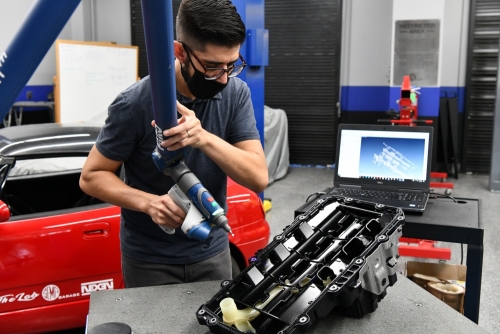SEMA News—July 2015
SEMA DATA CO-OP
By Jon Wyly
Are You Really “Too Busy” to Improve Your Business?
 | |
Believe it or not, one of the most common excuses for business people to put off change is to simply declare, “We’re too busy.” Too busy to hire more help, too busy to evaluate internal systems, too busy to change a simple process that will pay for itself many times over.
If you are part of the “too busy” crowd, it’s time to stop and take a breath. Spend some time looking around the company, listen to feedback from the folks who are actually doing the work, then take some sort of positive step forward to implement bits of efficiency, no matter how small.
Once you start digging in, you will be amazed at the amount of frustration being put up with by loyal staff who just assume that nothing can be done to improve a negative situation. In fact, if you do your job right, you will uncover lots of things that might seem insignificant to you but are a big deal to the folks dealing with them day in and day out. Your reward for acting on them will be meaningful incremental efficiency—and happier team members.
So where to start? Well, no offense intended here, but the accounting office is often a great place to dig up some nuggets. Are there tasks that can be improved with some minor adjustments to software or processes? How can you leverage IT staff to help streamline paperwork flow? Talk to the people who are handling the details. I guarantee that you will get some “it would be great if…” feedback just by challenging them to think about a better way rather than how to manage their way through built-in obstacles. Even minor fixes will be appreciated, creating an atmosphere of teamwork rather than silos of power.
Remember: Small victories add up to big improvements in job satisfaction, morale and productivity.
I’m reminded of a lesson learned in my personal quest to become—and live—debt free. It’s a process called the debt snowball, promoted by a financial guru named Dave Ramsey, and it involves simply listing all of your debts in order from smallest to largest, then beginning the process by paying off the smallest one first, as quickly as possible. Once that is done, attack the second one in the same manner.
Each month, you accumulate more payoff power by concentrating the money from each paid-off account to increase the payment on the next largest. Thus, the snowball effect.
Now, the numbers folks among you might be saying, “Wait a minute, why not start with the highest interest-rate debts first?” Well, the answer is simple. In Dave’s mind, and proven in practical application, becoming debt free is not about math; it’s about changing habits. The victory one feels with each paid-off debt provides the sense of accomplishment to continue. It’s the power of positive reinforcement
at work!
Think about it as a process for continuous improvement and imagine the possibilities as your company makes the change from “too busy to improve” to a culture of “too important not to improve.” Employees will take more ownership of their work and will enjoy the satisfaction of a more productive and communicative work environment. Owners will reap the financial benefits that come with savings and efficiencies found a dollar at a time. And the entire company will thrive in a culture where everyone is involved in helping their peers solve problems rather than trying to figure out where to point a finger.
Need help discovering the efficiencies and financial upside of properly managing your product data? Contact the SDC.
| To learn more about how you can take control of your product data and manage it at the lowest possible cost, contact SEMA Data Co-op Director of Membership Jim Graven at jimg@SEMAdatacoop.org or 888-958-6698 x4. |






